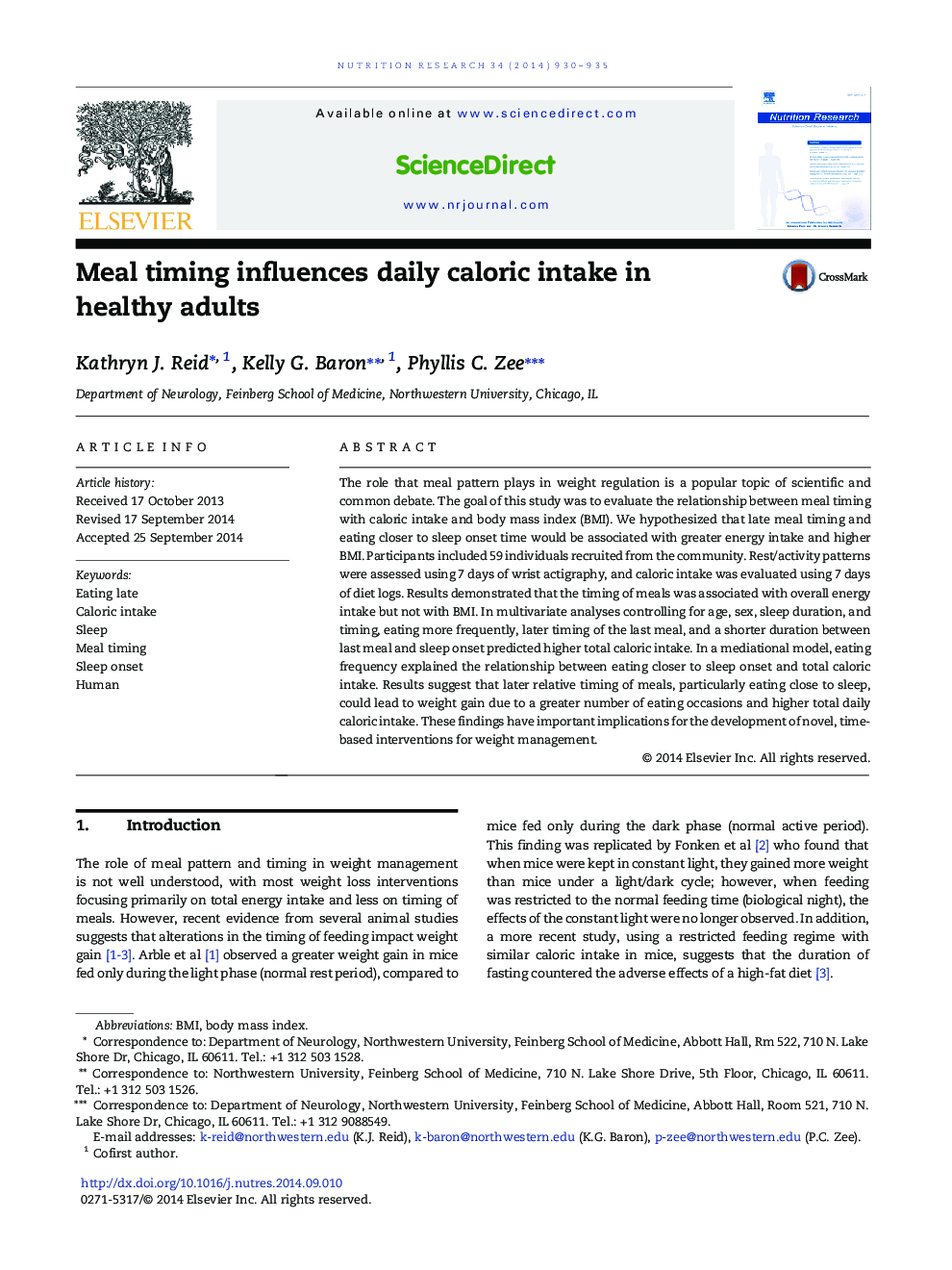| کد مقاله | کد نشریه | سال انتشار | مقاله انگلیسی | نسخه تمام متن |
|---|---|---|---|---|
| 5904585 | 1158014 | 2014 | 6 صفحه PDF | دانلود رایگان |
عنوان انگلیسی مقاله ISI
Meal timing influences daily caloric intake in healthy adults
ترجمه فارسی عنوان
زمان بندی غذا بر کالری روزانه در بزرگسالان سالم تأثیر می گذارد
دانلود مقاله + سفارش ترجمه
دانلود مقاله ISI انگلیسی
رایگان برای ایرانیان
کلمات کلیدی
موضوعات مرتبط
علوم زیستی و بیوفناوری
بیوشیمی، ژنتیک و زیست شناسی مولکولی
علوم غدد
چکیده انگلیسی
The role that meal pattern plays in weight regulation is a popular topic of scientific and common debate. The goal of this study was to evaluate the relationship between meal timing with caloric intake and body mass index (BMI). We hypothesized that late meal timing and eating closer to sleep onset time would be associated with greater energy intake and higher BMI. Participants included 59 individuals recruited from the community. Rest/activity patterns were assessed using 7 days of wrist actigraphy, and caloric intake was evaluated using 7 days of diet logs. Results demonstrated that the timing of meals was associated with overall energy intake but not with BMI. In multivariate analyses controlling for age, sex, sleep duration, and timing, eating more frequently, later timing of the last meal, and a shorter duration between last meal and sleep onset predicted higher total caloric intake. In a mediational model, eating frequency explained the relationship between eating closer to sleep onset and total caloric intake. Results suggest that later relative timing of meals, particularly eating close to sleep, could lead to weight gain due to a greater number of eating occasions and higher total daily caloric intake. These findings have important implications for the development of novel, time-based interventions for weight management.
ناشر
Database: Elsevier - ScienceDirect (ساینس دایرکت)
Journal: Nutrition Research - Volume 34, Issue 11, November 2014, Pages 930-935
Journal: Nutrition Research - Volume 34, Issue 11, November 2014, Pages 930-935
نویسندگان
Kathryn J. Reid, Kelly G. Baron, Phyllis C. Zee,
